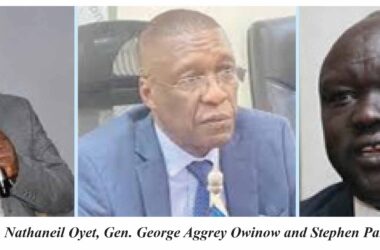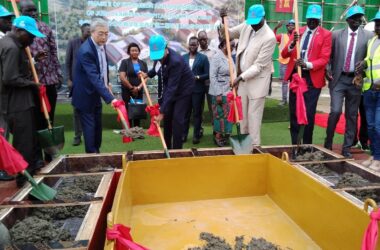By Philip Buda Ladu
Transitional National Legislative Assembly (TNLA) has adopted a report of the Public Account Committee which contains recommendations for strengthening national debt management and mitigation.
The Public Accounts Committee of the TNLA under the leadership of its chairperson Justin Joseph Marona led a five member delegation that attended a two-day workshop on the Transitional States Forum (TSF) stage (iii) for “Strengthening the Capacity of Transitional States for Effective Management and Mitigation of Debts Distress.”
South Sudan delegation attended the workshop held in Addis Ababa, Ethiopia from 11-12 June 2024 under the theme: “Addressing Emerging Public Debts Management Capacity Challenges in Africa’s Transitional States.”
It was organized by the African Development Institute of African Development Bank Group.
Following their full participation, the specialized committee for Public Accounts at the TNLA compiled a report on the summit drawing recommendations for the government financial dockets to implement.
Hon. Justin Joseph Marona, the chair of the committee and head of the delegation presented their report to the national assembly during Tuesday’s sitting No.35/2024 chaired by the Rt. Hon. 2nd Deputy Speaker, Parmena Awerial.
At the end of his presentation to the house Hon. Marona urged the August House to deliberate extensively and pass the report with observations and recommendations.
He hopes the recommendations will assist both the executive and legislature in addressing policies and technical gaps in debt and loan management as one of the core items in the country’s projected resource envelope for the execution of the fiscal budget during this challenging period.
The August House listened to the important report which covered a wide range of issues in relation to how countries in Africa take loans from either the World Bank or the Africa Development Bank.
Oliver Mori Benjamin, the spokesperson of the national parliament in his briefing to the media underlined that in most countries these loans are not effectively utilized for the purpose that they are meant for.
“Such as when loans are taken, they are brought instead of making it for investments these loans are consumed maybe for salaries or other unnecessary services that means the purpose of the loans have not been realized” Mori echoed.
According to him normally all governments in the world take loans to improve a nation’s development but not only to take loans to consume it.
After thorough deliberation of the report, the MPs unanimously adopted the report with recommendations for proper implementation by the executive.
The parliament spokesman emphasized that no loan shall from now on be allowed to be taken by the government when it has not been passed by the parliament.
“In other words all loans. If the government needs a loan it must first come to get the blessing from the parliament” Mori added.
Recommendations
The recommendations focus on improving South Sudan’s debt management practices and aligning them with the Revitalized Agreement on the Resolution of the Conflict in South Sudan (R-ARCSS).
Key among the recommendations themes are; improving and practising debt and loan management, capacity, and oversight; Strengthening public financial Management (PFM) systems and accountability; and Promoting economic growth through effective loan allocation and project management.
Furthermore: Specific summarized recommendations include; Capacity Building: Enhance the government’s capacity for debt and loan management through technical assistance from the African Development Bank Group.
Loan Planning: Develop a strategy for effective loan planning, appraisal, and utilization to support economic growth.
Parliamentary Oversight: Strengthen parliamentary oversight of debt and loan management to ensure transparency and accountability.
Institutional Strengthening: Prioritize capacity building and institutional strengthening for public financial management in the national budget.
Committee Oversight: Direct relevant parliamentary committees to focus on oversight activities related to debt and loan management.
Funding for Oversight: Allocate funds to the Administration of Parliament to support the activities of relevant committees, including foreign visits.
Loan Management Committee: Strengthen the Loan Management Committee and Debt Management Department to improve their effectiveness in managing loans.




